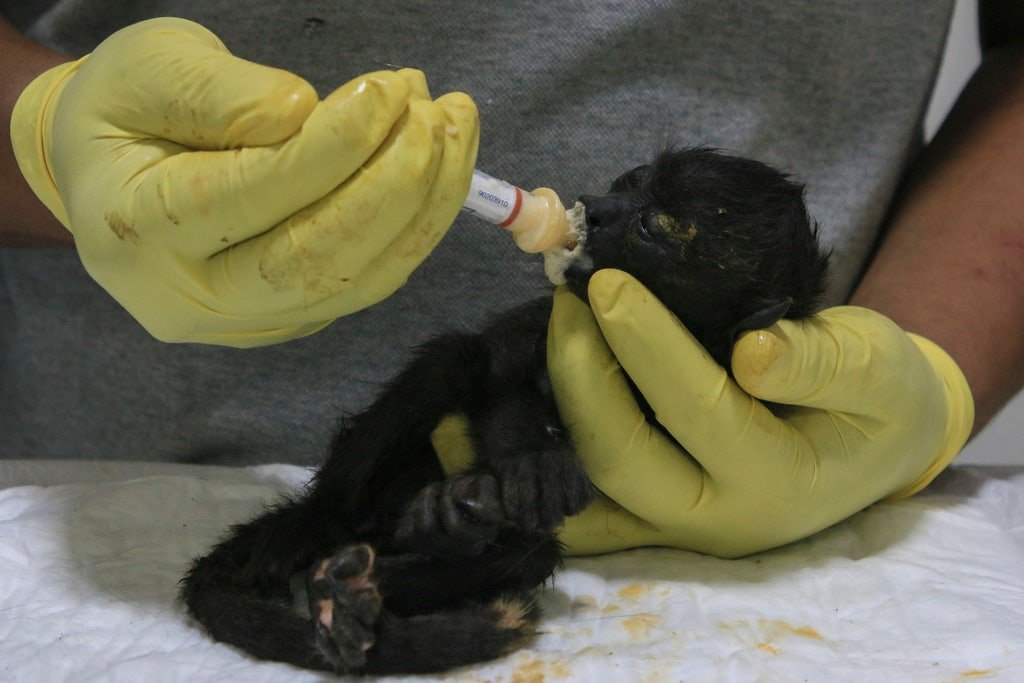The extreme heatwave in Mexico is taking a devastating toll on howler monkeys, causing them to fall dead out of trees due to severe dehydration. Wildlife biologist Gilberto Pozo described the distressing scene of monkeys falling out of trees “like apples” and dying within minutes. The city of Tecolutilla, Tabasco state, saw at least 83 howler monkeys found dead, with many others being rescued by local residents. Some of the rescued monkeys were rushed to a local veterinarian for immediate care, suffering from dehydration and heatstroke. Nine cities in Mexico have set temperature records, with Ciudad Victoria registering 117 degrees Fahrenheit.
The howler monkeys, known for their loud whooping bark or roar, were found in critical condition but are now showing signs of improvement and regression. While some local residents wanted to help the monkeys and even adopt them, Pozo warned against keeping them as pets due to their delicate nature and the potential risks from pathogens carried by household pets. Special recovery stations have been set up for the monkeys, and a team of specialized veterinarians is being organized to provide necessary care for their rehabilitation and release back into the wild.
The howler monkeys primarily get water from the food they eat, making the heatwave particularly dangerous for their survival. Several factors such as high temperatures, drought, and forest fires have contributed to the death of the monkeys. Mexico’s President Andrés Manuel López Obrador acknowledged the issue after reports surfaced on social media, commending the efforts of the local veterinarian, Dr. Sergio Valenzuela, and promising government support for the work being done to save the monkeys. The howler monkeys play a crucial role in their ecosystem, and efforts are being made to ensure their recovery.
The howler monkeys’ plight is just one example of the impact of the extreme heatwave in Mexico, which has led to the deaths of at least 26 people since March. The heatwave has been blamed for the record-breaking temperatures in several cities, with Ciudad Victoria experiencing scorching temperatures. As the heatwave continues to affect wildlife and humans alike, there is a growing concern about the long-term consequences of climate change on ecosystems and biodiversity. The need for proactive measures to address the effects of extreme weather events is becoming increasingly urgent to protect vulnerable species like the howler monkeys.
The local community in Tabasco state has rallied together to rescue and care for the howler monkeys affected by the heatwave, demonstrating the importance of community involvement in wildlife conservation efforts. While the situation remains challenging, the efforts of individuals like Pozo and Valenzuela, supported by the government, show that there is hope for the recovery of the howler monkey population. By raising awareness about the impact of climate change on wildlife and taking action to protect vulnerable species, we can work towards a more sustainable and resilient future for all living beings on our planet. The howler monkeys serve as a reminder of the interconnectedness of all life and the need to protect and preserve biodiversity for future generations.










